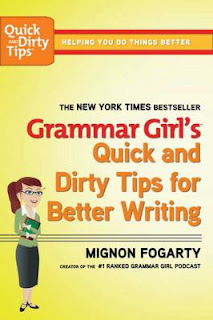Jennifer Jackson has been an agent with the Donald Maass Literary Agency since 1993. Her area of concentration is science fiction and fantasy, though she also represents romance, women's fiction, mystery, suspense, and young adult fiction.
What I like best about Jackson's blog is her weekly post on queries. She shares the number of queries received each day, along with the number of partials requested. Though the numbers may seem discouraging to some, it's a great dose of reality for writers, and encourages me to make sure I keep working on my craft.
If you look at Jackson's latest query post, you'll not only see the small fraction of queries that receive a "yes", but also her notes that will help writers refine their own queries. Things like making sure the agent represents the genre you write. Actually finishing (and polishing) the manuscript before querying. And running your query through a spell check before hitting send. If you want to know more about queries, scroll through all of Jackson's "query wars" posts for a great education on what not to do.
The queries you send should not be dashed off in a few minutes. Though it seems like a simple business letter, remember that this is the first example of your writing an agent will see. Treat your query somewhat like your manuscript. Revise and edit the letter multiple times. Ask your critique group for suggestions and changes. Your query should take weeks (at least) to tweak before sending it off to your carefully targeted agents.
The other part of Jackson's blog I like are her entertaining Agent Manners posts. Jackson holds forth on everything from conference etiquette, to submissions and synopses.
Most of all, Jackson seems truly excited about being an agent, even after years in the business, and weeding through thousands of queries a year. Read her post, The Pleasure of Agenting, to get a glimpse into the aspects of the business that keep her going.
So here's a question for you: What do you consider to be the pleasures of writing? Something good to think about on the last day of the year.

















